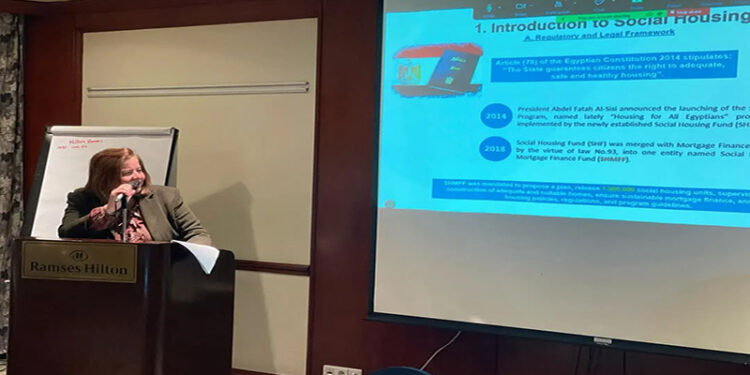Mai Abdel Hamid, CEO of the Social Housing and Mortgage Finance Fund, participated in a panel discussion titled “Integrated Urban Communities for Improved Quality of Life” during the “Innovation for Impact” conference held in Cairo. The session also featured the Advisor to the Governor of Cairo and representatives from both international and local institutions, and was moderated by Engineer Karim Ibrahim.
During the discussion, Mai Abdel Hamid presented an overview of the presidential initiative “Housing for All Egyptians”, which is dedicated to providing housing for low- and middle-income citizens.
She explained that the rising interest among citizens in acquiring housing units is largely due to the substantial support provided by the state, which covers between 50% and 60% of the unit’s cost. This support includes various forms such as direct and indirect financial aid, as well as subsidized interest rates, all of which fall under broader social protection programs.

Abdel Hamid further noted that the Social Housing Fund focuses on constructing 85% of the residential units in new urban cities, with the remaining 15% implemented in existing governorates. The Fund actively monitors the occupancy of the units, ensures the availability of essential services, and maintains direct communication with beneficiaries to guarantee the long-term success of the project.
She added that the Fund’s sustainability model is built around a mortgage finance system in collaboration with 30 banks and lending institutions, which contributes to the project’s financial stability.
Mai Abdel Hamid also highlighted that the Fund relies on 2,000 construction companies to carry out housing projects, a strategy that has generated 4 million job opportunities. To date, 730,000 housing units have been completed, while an additional 300,000 units are under construction.
Moreover, the Fund is working on delivering environmentally friendly housing units as part of the Green Architecture initiative, with a strong emphasis on building sustainable green communities. A design competition for the second phase of the initiative has been launched, targeting the development of 30,000 eco-friendly housing units in partnership with several institutions.
